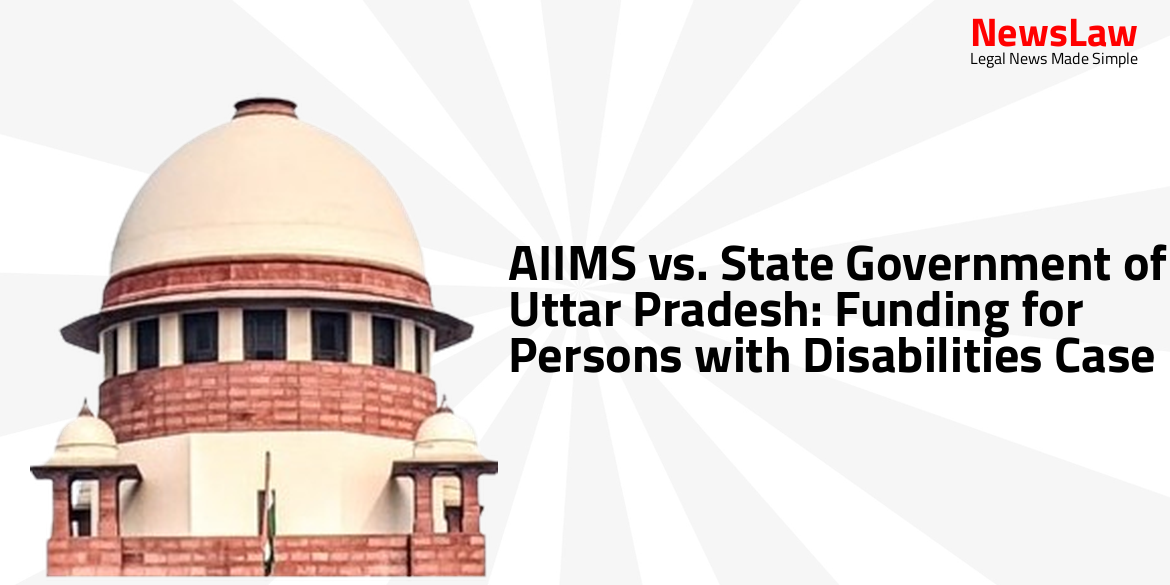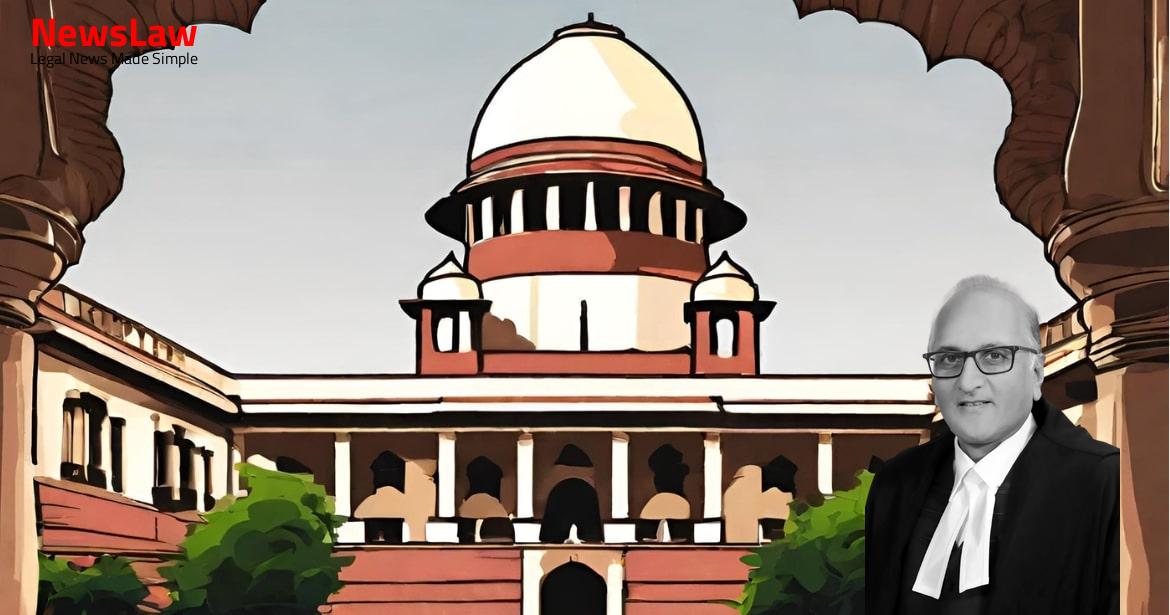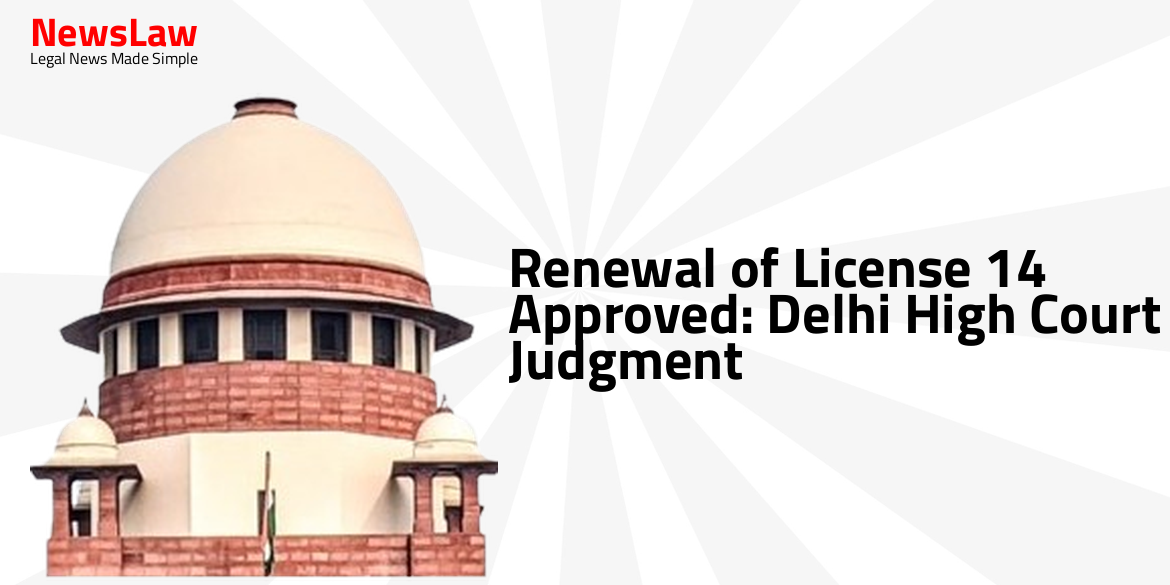In a recent ruling by the Supreme Court of India, a crucial legal battle over bank obligations under the MSMED Act and the SARFAESI Act has been resolved. This judgment provides clarity on the statutory force of the Central Government’s Notification dated 29.05.2015 and its impact on the banking sector. The decision sheds light on the nuanced relationship between the two acts and their implications for banks and MSMEs. Stay informed on this important development in the financial landscape.
Facts
- The High Court dismissed the Writ Petitions challenging the order dated 11.01.2024
- The High Court ruled that Banks/NBFCs are not obligated to follow the restructuring process without application from the MSMEs
- High Court granted leave to the Appellants to pursue other issues through alternative remedies
- Counsels limited their submissions to the issue decided by the High Court
- The Writ Petitioners/Appellants had challenged the actions of the Banks/NBFCs under the SARFAESI Act.
- The High Court had dismissed the writ petitions filed by the Appellants.
- The Appellants then appealed to the Supreme Court against the High Court’s decision.
- The Supreme Court reviewed the case and provided its judgment on the matter.
Also Read: Commercial Purpose Determination in Car Purchase: Supreme Court Judgement
Issue
- The issue involved in the instant appeals is whether the Notification dated 29.05.2015 issued by the Central Government under Section 9 of the MSMED Act is mandatory or directory.
Also Read: National Investigation Agency vs. Popular Front of India: Supreme Court Judgement
Arguments
- The bone of contention raised by Mr. Mathews Nedumpara, Counsel for the Appellants, is that the Banks classified the MSMEs’ loan accounts as NPAs without following the procedure laid down in the Instructions for Framework for Revival and Rehabilitation of MSMEs.
- Mr. Nedumpara argued that the Banks should have identified incipient stress in the accounts and explored various options to resolve the stress as per the Notification dated 29 May, 2015 by the Ministry of MSME.
- He highlighted that the said Notification and subsequent Instructions/Directions aim to promote and enhance the competitiveness of MSMEs, making it mandatory for the Banks to follow them.
- Non-observance of the mandatory instructions in the Notification dated 29.05.2015 rendered subsequent actions by the respondents under SARFAESI Act illegal and void ab initio.
- Counsels for Respondent Banks/NBFCs argue that SARFAESI Act provisions override others, including MSME Act, as per Section 35.
- They contend that Instructions under Section 9 of MSMED Act are directory, not mandatory or with statutory force.
- Appellants did not apply for the benefits of the Notification, and banks proceeded with SARFAESI Act processes lawfully.
- The restructuring process and NPA classification are deemed independent; restructuring under the Notification is not necessary for NPA classification.
Also Read: D.K. Gandhi vs. The Advocates in Consumer Protection Case
Analysis
- The Framework for Revival and Rehabilitation of Micro, Small and Medium Enterprises requires banks or creditors to identify incipient stress in the accounts before they turn into Non-Performing Assets (NPA).
- The RBI issued the Master Direction called the’ Reserve Bank of India (Lending to Micro, Small, and Medium Enterprises (MSME) Sector) Directions, 2016′ to facilitate this process.
- The Central Government’s Notification dated 29.05.2015 under Section 9 of the MSMED Act is central to the dispute in this case.
- The Framework allows MSME borrowers to voluntarily initiate proceedings under it, and a committee approach is adopted for deciding the corrective action plan.
- The instructions within the Framework are binding on Scheduled Commercial Banks operating in India.
- Before a loan account of an MSME becomes NPA, banks must categorize incipient stress into sub-categories under the Special Mention Account category.
- The classification and committees for stressed MSMEs play a crucial role in this process.
- Banks are required to have their own board-approved policies to operationalize the Framework within a specified time frame.
- The revised Framework supersedes earlier guidelines on Rehabilitation of Sick Micro and Small Enterprises.
- Section 21 of the Banking Regulation Act, 1949 empowers the Reserve Bank of India to control advances by banking companies.
- The Reserve Bank can determine the policy in relation to advances to be followed by banking companies, either generally or by a specific company, if it deems necessary in the public interest, depositors’ interest, or banking policy.
- Once the policy is determined, banking companies are legally obligated to comply with it.
- Section 35A of the Banking Regulation Act gives the Reserve Bank the power to issue directions to banking companies in various situations, such as in the public interest, to safeguard banking policy, prevent detrimental conduct towards depositors, or ensure proper management.
- Banking companies are required to comply with any directions issued by the Reserve Bank under Section 35A.
- The High Court’s findings stating that the Banks are not obligated to adopt the restructuring process on their own is deemed highly erroneous.
- The Framework in the Notification dated 29.05.2015, as revised, is considered to be mandatory in nature.
- The High Court did not address other issues based on factual aspects in the writ petitions.
- Appellants are permitted to seek any legally available remedy for unresolved issues not addressed in the High Court’s order.
Decision
- Appeals allowed to the extent mentioned
- Instructions issued by Central Government and RBI under specific sections have statutory force and binding on all banking companies
- Impugned order set aside
- No remand to High Court as proceedings under SARFAESI Act concluded and possession of premises taken over
Case Title: M/S. PRO KNITS Vs. THE BOARD OF DIRECTORS OF CANARA BANK (2024 INSC 565)
Case Number: C.A. No.-008332-008332 – 2024



